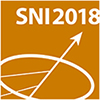Speaker
Description
Co-Re-based alloys [1] are developed to supplement single crystal Ni-based superalloys in future gas turbines. Addition of boron to the Co-Re-based alloys largely increases their ductility [2] and is thus advantageous. On the other hand, the stability of the matrix at the foreseen metal operation temperatures (≥1200°C), which can be influenced by the presence of boron, is also an important concern for the alloy development.
Therefore, the influence of boron addition on Co-Re stability was investigated in situ at high temperatures using neutron diffraction (MLZ Garching). It was found for the Co-17Re-23Cr alloy that the increased boron concentration changes significantly, but not monotonically, the hcp to fcc matrix transformation temperature [3]. The reason is an interplay between amount of boron in the matrix and amount of sigma phase (Cr2Re3) which binds hcp-stabilizing element Re.
Moreover, increasing boron concentration also lowers temperature at which evaporation of Co and/or Cr occurs, followed by an appearance of second or even third hcp matrix phase. The formation of these additional hcp phases was observed at temperatures >1430°C. This effect is not detrimental to the alloy development as the evaporation starts significantly above the foreseen operation temperature.
[1] J. Rösler et al., Adv.Eng.Mater. 9, 2007, 876
[2] D. Mukherji et al., Scr.Mater.66, 2012, 60
[3] P. Strunz et al., Met.Mater.Int., 2018, doi.org/10.1007/s12540-018-0121-8

